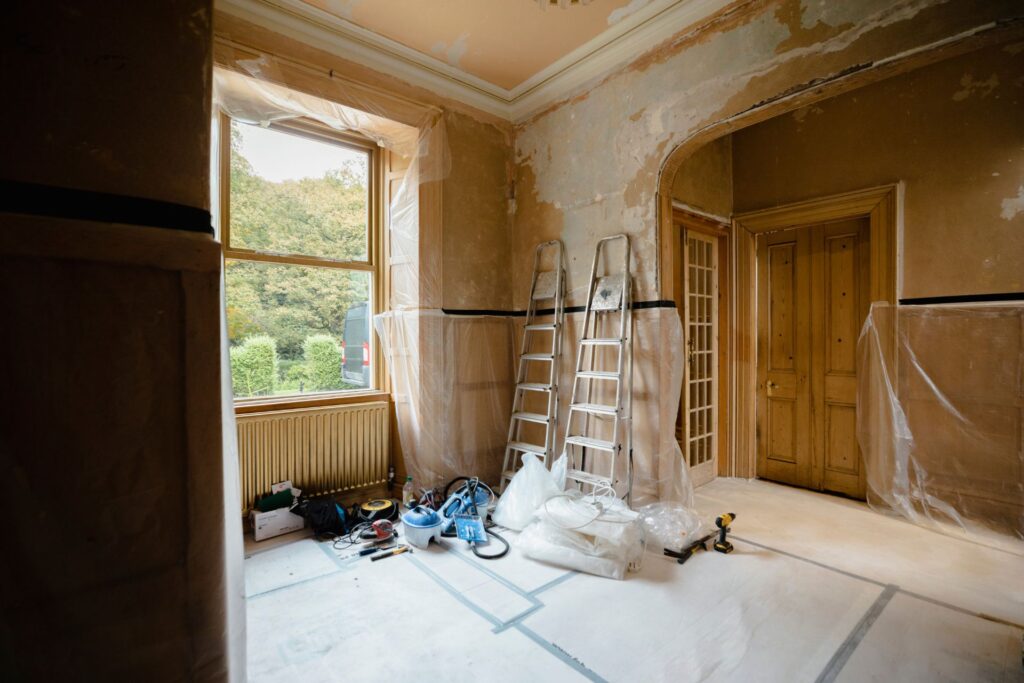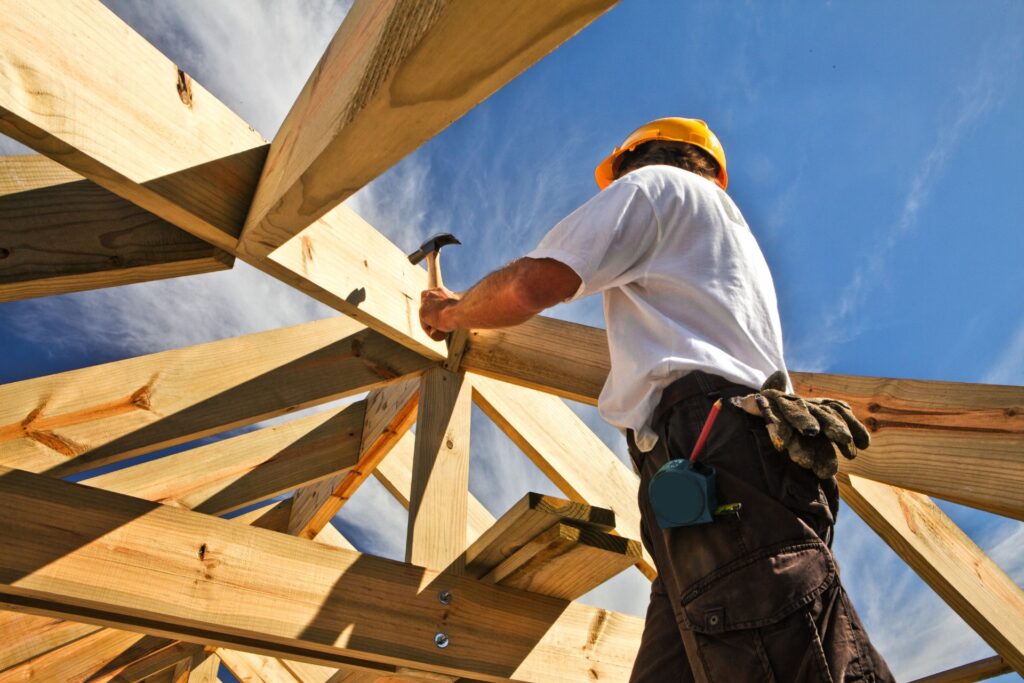Welcome to your ultimate guide on what qualifications you need to become a builder, whether you’re just starting or considering a career change. Builders play a vital role in shaping the structures we rely on every day, from homes to skyscrapers, and the pathway to becoming one is both rewarding and accessible. In this post, we’ll break down everything from the essential skills and qualifications to the hands-on experience required for a successful career in construction. Whether you’re curious about formal education, or apprenticeships, or simply want to understand the practical steps to enter the building industry, we’ve got you covered. Let’s dive into what it takes to turn your passion for construction into a lifelong profession.
To become a builder, you’ll typically need a combination of practical experience, vocational training, and relevant certifications. While formal education like GCSEs in subjects such as math and science is helpful, most builders start through apprenticeships, gaining hands-on experience while learning the trade. Specialized roles may require additional qualifications, and safety certifications like the CSCS card (in the UK) are often mandatory. Skills like problem-solving, physical stamina, and teamwork are also essential for success in the building industry.
- Understanding The Role Of A Builder
- Formal Qualifications – Do You Need Them?
- On-The-Job Experience – The Key To Success
- Specialized Qualifications And Certifications
- Soft Skills And Personal Traits Builders Need
- Tools Every Builder Needs
- How To Build A Career In The Building Industry
- FAQs: About What Qualifications Do I Need To Be A Builder
- Conclusion
Understanding The Role Of A Builder
What Does a Builder Do?
A builder is a professional responsible for the construction, repair, and maintenance of buildings and structures. Their role is essential in transforming architectural plans into physical reality. Builders work on a wide range of projects, which can include homes, commercial spaces, factories, and other industrial structures.
For example, when it comes to residential projects, builders are involved in tasks such as laying foundations, constructing walls, installing roofing, and finishing interiors. In contrast, commercial projects might require constructing office buildings or retail spaces, often involving more complex designs and larger teams. Industrial projects, such as factories and warehouses, tend to require expertise in building large, functional spaces with specialized needs like reinforced structures and heavy equipment installations.
Builders come in various forms, depending on the scope and nature of the work. General builders typically oversee all aspects of construction, managing multiple tasks from start to finish. However, there are also more specialized builders, such as bricklayers, who focus specifically on constructing walls, or carpenters, who handle woodwork and framework. These specialists often work alongside general builders to complete specific portions of a project.
Skills Builders Need
To be successful, builders need a range of skills that go beyond simply knowing how to handle tools and materials.
Physical Stamina and Dexterity
Building work is physically demanding, requiring strength and endurance. Builders often spend long hours on their feet, lifting heavy materials, operating equipment, and performing repetitive tasks. Physical fitness is critical, as it helps prevent injuries and enables builders to work efficiently across long shifts.
Attention to Detail
In construction, even the smallest mistake can lead to costly repairs or safety risks. Builders must pay close attention to every aspect of the project, ensuring that measurements are precise, materials are used correctly, and the construction aligns perfectly with the architectural plans. A strong focus on detail ensures that the final product is both functional and aesthetically pleasing.
Problem-solving and Critical Thinking
Construction sites are often dynamic environments where challenges can arise unexpectedly. Whether it’s dealing with unforeseen structural issues, managing delays due to weather, or handling material shortages, builders need strong problem-solving abilities. This includes thinking critically and creatively to find solutions that keep the project on track without compromising on quality or safety.
Ability to Work in a Team and Follow Safety Regulations
Building projects typically involve a diverse team of professionals, including architects, engineers, electricians, plumbers, and laborers. Builders must communicate effectively and collaborate to ensure that everyone works in sync. Moreover, the ability to follow safety regulations is crucial. Construction sites can be hazardous, and strict adherence to safety protocols helps prevent accidents and keeps everyone on-site secure.
By understanding these core responsibilities and skills, it becomes clear that builders are not just laborers but skilled professionals who play a critical role in shaping our built environment. Whether working on residential homes, commercial buildings, or large industrial complexes, their expertise ensures that construction projects are completed efficiently, safely, and to a high standard of quality.

Formal Qualifications – Do You Need Them?
Educational Requirements
Entering a career in the construction or trades industry offers more flexibility in terms of educational requirements compared to many other professions. While having a university degree can sometimes be beneficial, it is by no means a necessity for most roles in this field. This makes it a more accessible career choice for many individuals.
At a minimum, most employers look for basic qualifications like GCSEs (General Certificate of Secondary Education) in core subjects such as math, science, and English. These subjects provide the foundational skills needed for most trades, such as understanding measurements, basic problem-solving, and clear communication, all of which are essential in construction work.
However, what sets this career path apart is that you don’t need to commit to a lengthy university education to get started. In fact, many people in the industry opt for vocational courses instead. Programs like diplomas or certifications in construction, carpentry, plumbing, or other related trades offer practical knowledge that is directly applicable to the job. These courses often take less time to complete than a traditional university degree and focus on hands-on training, which is invaluable in a field that requires strong technical skills.
For those eager to enter the workforce without the added expense or time commitment of a degree, this is an ideal option. Not only do vocational qualifications open doors to immediate employment, but they also help individuals build a specialized skill set that can lead to career advancement later on.
Apprenticeships: The Traditional Path
One of the most well-established and reliable ways to enter the trades industry is through an apprenticeship. But what exactly is an apprenticeship, and why do so many people consider it the best route into this field?
An apprenticeship is essentially a structured program that combines on-the-job training with classroom learning. It allows individuals to learn a trade by working alongside experienced professionals while also attending classes to cover the theoretical aspects of the job. This approach offers a unique opportunity to gain practical skills in a real-world environment, all while earning a salary. This means you are not only learning but also getting paid during your training an attractive option for those who want to avoid student debt or who are eager to start earning right away.
Typically, apprenticeships last anywhere from one to four years, depending on the specific trade and the level of qualification you’re aiming for. During this time, apprentices learn a wide range of skills. You’ll get hands-on experience with tools, become familiar with building materials, and gain crucial knowledge about safety protocols that are vital in any construction job. Many programs also include specialized training in areas like electrical systems, plumbing, or carpentry, depending on the path you choose.
Additionally, apprenticeships are supported by various government initiatives aimed at encouraging more people to enter the trades. In many countries, there is often funding available to help cover the costs of apprenticeship programs, making it an even more appealing option for those looking to start their career without the financial burden of higher education.
In summary, while formal qualifications are helpful, they are not a strict requirement in this field. Apprenticeships and vocational courses provide practical, hands-on experience that prepares individuals for a successful career in the trades, often making them the preferred routes into the industry.

On-The-Job Experience – The Key To Success
Why Experience Matters
In the construction industry, hands-on experience is far more valuable than theoretical knowledge alone. While formal education can provide a strong foundation, it’s the on-the-job experience that shapes a competent and reliable builder. Employers and clients alike tend to prioritize a candidate’s proven ability to perform well in real-world settings. This is because construction projects require practical problem-solving, the ability to handle tools efficiently, and a deep understanding of building techniques that can only be honed through experience.
When you work directly on-site, you gain exposure to the day-to-day challenges and realities of the job that textbooks can’t teach. These challenges such as managing unexpected weather conditions, meeting tight deadlines, or adjusting plans on the fly equip you with the resilience and adaptability necessary for success. Additionally, working alongside skilled professionals allows you to observe best practices in action, from handling materials safely to executing complex designs with precision. Ultimately, on-the-job experience bridges the gap between knowing how to do something and mastering it.
Ways to Gain Experience
While gaining hands-on experience may seem daunting at first, there are multiple paths you can take to start building your skills. Here are some practical ways to get your foot in the door:
1. Entry-Level Positions: Starting as a laborer or an assistant to an experienced builder is a common and effective way to gain exposure to the construction environment. These roles allow you to familiarize yourself with tools, materials, and processes while working directly on active projects. In these positions, you can observe the work of seasoned builders, gradually taking on more responsibilities as you learn.
2. Volunteering or Internships: Many organizations, including non-profits, host volunteer-based construction projects where you can contribute your time and effort. Alternatively, securing an internship with a building company offers the opportunity to learn in a more structured environment. Both options provide valuable practical experience and can help build your resume or portfolio.
3. Working Under a Mentor: One of the best ways to advance in the construction industry is to find a mentor an experienced builder who can guide you through the intricacies of the trade. Mentorship provides a unique learning experience, where you not only gain technical skills but also receive personalized advice and feedback. Whether it’s learning how to approach a new project or navigating challenges on the job, having a mentor accelerates your professional growth.
In conclusion, while formal training is important, it’s the practical, hands-on experience that truly molds you into a skilled builder. Whether you’re starting as a laborer, volunteering, interning, or working under a mentor, every project you work on adds to your expertise, setting you up for long-term success in the construction industry.

Specialized Qualifications And Certifications
Specialized Training for Niche Roles
If you’re aiming to specialize in a particular field within construction be it plumbing, bricklaying, carpentry, or any other trade obtaining the right qualifications is essential. These certifications not only verify your skills but also make you more competitive in the job market. For instance, a bricklayer may need to complete a formal apprenticeship or vocational training, which typically includes hands-on experience combined with theoretical learning. Likewise, carpenters might require training in specialized woodwork, framing, and structural systems before they can be considered fully qualified.
Moreover, specialized training doesn’t stop once you’ve earned your initial qualification. The construction industry is constantly evolving, and professionals must stay up to date on the latest tools, materials, and industry trends. For example, advancements in energy-efficient building techniques and smart construction materials can offer new opportunities for builders who take the initiative to master these innovations. Upskilling in these areas can lead to more complex, higher-paying jobs and solidify your reputation as an expert in your field.
Certification and Licensing
Becoming a licensed builder isn’t just about completing your training; in many regions, certification is a legal requirement. These certifications ensure that all work meets local safety, quality, and legal standards. For example, in the UK, builders often need to obtain the Construction Skills Certification Scheme (CSCS) card to work on construction sites legally. This card proves that the individual has the necessary training and qualifications for their specific job role. In contrast, in the United States, OSHA (Occupational Safety and Health Administration) certification is a common requirement, particularly for workers in hazardous environments. This ensures that individuals are aware of safety protocols and can prevent workplace accidents. In Australia, builders often need to pass exams and meet certain experience requirements before receiving a builder’s license, varying by state.
Additionally, compliance certifications, particularly around safety and building codes, are crucial. Regulations frequently change, and builders must ensure they are compliant with the latest standards. In many markets, failure to stay current with certifications can result in fines or losing your ability to operate legally.
Whether you’re in the UK, US, or Australia, certification is more than just a box to tick it’s a way to prove your credibility, improve your marketability, and ensure that you can work safely and legally on construction sites. Moreover, staying up to date with certifications ensures that you remain informed about the latest developments in safety and regulations, making you a trusted professional in the field.
By obtaining the right certifications and continuing to learn throughout your career, you can expand your opportunities, take on more specialized roles, and position yourself as a leader in the construction industry.

Soft Skills And Personal Traits Builders Need
In today’s fast-paced construction industry, technical expertise is vital for builders. However, possessing a strong set of soft skills is equally important. These personal traits and interpersonal abilities can significantly impact a builder’s success on the job site. Let’s break down the key soft skills and characteristics that every builder should cultivate to thrive in this field.
Communication and Teamwork
Strong communication skills are crucial for builders. On a construction site, clear and effective communication is necessary when interacting with architects, clients, and team members. Builders frequently collaborate with various stakeholders to ensure that a project is executed correctly. Miscommunication can lead to costly errors, project delays, and even safety hazards.
Moreover, builders must not only speak clearly but also be excellent listeners. Understanding client needs and expectations is the cornerstone of customer satisfaction. Builders need to interpret these requirements and transform them into tangible results. Whether discussing project plans with architects or ensuring the construction crew understands their roles, effective communication ensures the project moves forward smoothly.
Teamwork is another essential element in the construction industry. Builders rarely work alone, so the ability to collaborate harmoniously with others is paramount. A well-coordinated team works like a well-oiled machine, where each person knows their responsibilities and can count on their peers to contribute effectively. Builders who excel in communication and teamwork help foster a productive and positive work environment.
Project Management and Leadership
As builders advance in their careers, they often find themselves stepping into supervisory or leadership positions. In these roles, they must oversee various aspects of construction projects, from managing teams to coordinating schedules and ensuring deadlines are met.
Project management is more than just planning; it requires leadership skills. A good builder knows how to delegate tasks, motivate team members, and resolve conflicts. These leadership traits help ensure the project stays on track. Builders must also possess strong organizational skills to keep everything running smoothly, from monitoring the supply of materials to making sure all safety protocols are followed.
Additionally, understanding the intricacies of budgeting and resource management is essential. Builders need to make cost-effective decisions without compromising quality, requiring a keen understanding of both financial management and construction timelines.
Problem-Solving and Adaptability
Construction projects are notorious for encountering unexpected challenges. Whether it’s a supply delay, poor weather, or unforeseen structural complications, builders need to think on their feet. The ability to problem-solve effectively can make the difference between a successful project and one that falls apart.
Builders who are resourceful and creative can find solutions to these problems without significantly impacting project timelines or budgets. Adaptability is also critical construction sites are dynamic environments, and the ability to adjust plans on the fly is an invaluable trait.
For example, if weather conditions prevent certain outdoor tasks from being completed on schedule, a skilled builder might rearrange tasks to maximize productivity in other areas. This kind of flexibility ensures that progress continues despite the obstacles, showcasing a builder’s ability to manage both time and resources effectively.
In conclusion, while technical know-how is essential for any builder, mastering soft skills such as communication, leadership, and problem-solving is what separates a good builder from a great one. These personal traits enhance a builder’s ability to navigate the complexities of construction projects, lead teams, and exceed client expectations.

Tools Every Builder Needs
Building and construction require a unique blend of skill, experience, and the right tools. Whether you’re a seasoned contractor or a DIY enthusiast, the tools you have at your disposal can make or break your project. From traditional hand tools to modern technological advancements, here’s a detailed look at the essential equipment every builder should be familiar with.
Essential Tools of the Trade
In construction, having the right tools isn’t just about convenience it’s about getting the job done safely and efficiently. Let’s start with the basics before moving into more specialized equipment.
Basic Tools Every Builder Should Own
1. Hammer
No tool kit is complete without a trusty hammer. Whether it’s framing a house or installing a fence, hammers are indispensable for driving nails, pulling them out, or doing demolition work.
2. Screwdrivers
Screwdrivers, both flat-head and Phillips-head, are fundamental. Builders often encounter various screws, making a good set of screwdrivers essential for assembling materials or fastening components securely.
3. Measuring Tape
Accuracy in construction is non-negotiable. A sturdy measuring tape ensures that all cuts and placements are precise, preventing costly mistakes later in the project.
4. Levels
From hanging doors to installing kitchen cabinets, a level is critical to ensure surfaces are perfectly horizontal or vertical. Ensuring things are level prevents potential alignment issues and structural problems.
5. Utility Knife
A sharp utility knife is necessary for cutting a variety of materials, from drywall to flooring. Its versatility makes it a key tool in any construction arsenal.
Advanced Tools for Specialized Roles
As builders progress in their careers or as projects become more complex, more advanced tools are required to handle the workload. These tools are particularly important for specialized tasks that require precision and efficiency.
1. Power Drills and Impact Drivers
Power drills significantly speed up construction work, particularly when it comes to drilling holes or driving screws. Impact drivers are invaluable for driving in longer screws or bolts that need more force than a standard drill can provide.
2. Circular and Miter Saws
When it comes to cutting lumber, no tools compare to circular and miter saws. Circular saws are perfect for quick, straight cuts on larger pieces of wood, while miter saws provide precision for angled cuts needed in trim work or framing.
3. Heavy Machinery (Skid Steers, Backhoes, etc.)
On larger construction sites, builders often need more than handheld tools. Skid steers and backhoes are examples of heavy machinery that help with digging, lifting, and moving large quantities of material. Familiarity with these machines can make large-scale projects more manageable and efficient.
4. Nail Guns
For projects involving framing or roofing, nail guns save significant time compared to using a hammer. With pneumatic or cordless options, nail guns allow for the rapid placement of nails, reducing fatigue and improving productivity.
Technological Tools: The Future of Construction
The construction industry is rapidly evolving, thanks in part to advancements in technology. Today’s builders are not just using physical tools but also embracing digital solutions to increase productivity, improve accuracy, and streamline project management.
Software for Project Management
One of the most significant technological advancements in construction is the introduction of project management software. Programs like Procore, Buildertrend, and PlanGrid allow builders to oversee every aspect of a project from a single platform. These tools help with scheduling, budgeting, and documentation, ensuring that nothing falls through the cracks.
With cloud-based solutions, builders can access real-time updates from any location, making it easier to manage large teams or complex projects. This not only increases efficiency but also reduces the likelihood of costly mistakes and rework.
Drones for Site Inspections
Drones are revolutionizing how construction sites are surveyed and inspected. They provide a bird’s-eye view of the entire project, allowing for more thorough inspections without the need for scaffolding or climbing. Drones can quickly identify structural issues, monitor progress, and even help with land surveying before construction begins.
Additionally, drones enable builders to capture high-resolution images and videos, which can be shared with stakeholders, improving communication and transparency throughout the project’s lifecycle.
3D Printing and Robotics
While still emerging, 3D printing and robotics are starting to make waves in the construction sector. 3D printing allows for the rapid production of custom components or even entire structures, reducing waste and labor costs. Robotic equipment, such as bricklaying robots or robotic arms for precision tasks, can work alongside human workers to complete jobs faster and with greater accuracy.
Wearable Tech for Safety
Wearable technology, like smart helmets or vests with sensors, is becoming increasingly popular for enhancing safety on construction sites. These devices can monitor vital signs, detect dangerous gases, or alert workers to hazardous conditions in real-time, helping prevent accidents before they happen.
The construction industry is a blend of tradition and innovation. Basic tools like hammers, drills, and levels remain essential, while advanced machinery and technology are reshaping how builders work. By staying updated on the latest tools and tech, every builder can improve the efficiency, safety, and overall quality of their projects. Whether you’re just starting or a seasoned pro, knowing how to use both manual and digital tools is key to thriving in today’s competitive construction landscape.

How To Build A Career In The Building Industry
The construction and building industry offers a wide range of opportunities for those looking to establish a rewarding career. Whether you’re just starting or have years of experience, the path to success in this field requires strategic planning, skill development, and relationship-building. In this section, we’ll cover essential steps to help you build a strong foundation for your career and climb the industry ladder.
Starting Small and Building Your Reputation
When breaking into the building industry, it’s important to start by building a portfolio even if the projects you work on initially are small. These first jobs will serve as your stepping stones to larger, more prestigious projects. Here’s why starting small and focusing on reputation matters:
1. Portfolio Development: Every project, regardless of its size, adds value to your portfolio. A portfolio acts as your professional showcase, allowing potential clients or employers to see your work quality, style, and capabilities. Even a few small home renovations or handyman jobs can go a long way in creating a solid foundation.
2. Finding Your First Clients: Getting hired for your first few projects can be challenging, but there are a few proven methods to find initial opportunities:
- Leverage Personal Connections: Friends, family, and acquaintances can provide your first referrals.
- Freelancing Platforms and Social Media: Utilize platforms like LinkedIn, Facebook, and local job boards to showcase your services. You can also find potential clients through freelancing websites.
- Partnering with Local Contractors: Many contractors are willing to work with independent builders or hire subcontractors for smaller tasks.
The key is to deliver quality work on time and with excellent customer service. Satisfied clients will recommend you, allowing your reputation to grow organically.
Climbing the Career Ladder
Once you’ve established yourself in the industry, the next step is to broaden your skill set and explore ways to advance your career. The building industry offers various paths for professional growth.
1. Specialization: One way to grow is by specializing in a niche area. For example, becoming an expert in sustainable building practices or mastering a particular type of construction material (like timber or steel) can set you apart from general contractors. You can pursue certifications or additional training in areas like:
- Energy-efficient building
- Plumbing and electrical systems
- LEED certification for green building
Specializing often leads to higher-paying projects and a competitive edge.
2. Expanding Your Skill Sets: You can also increase your value by learning additional skills or earning certifications in complementary areas. For instance, project management training can help you transition into supervisory roles.
3. Transitioning to Other Roles: If you’re looking to move up the ranks, many builders find success in shifting to roles such as:
- Project Manager: Oversee larger projects, manage teams, and ensure timelines and budgets are met.
- Construction Foreman: Take responsibility for supervising workers and ensuring job site safety.
These roles often offer higher salaries and more responsibility, making them appealing for experienced builders looking for career growth.
Networking and Industry Connections
In the building industry, who you know can be just as important as what you know. Networking is key to finding new opportunities, securing contracts, and staying updated on industry trends. Here’s how to expand your network:
1. Building Relationships: Make it a priority to connect with people within the construction community. Strong relationships with clients, suppliers, subcontractors, and other builders can help you find new work and grow your business.
2. Working with Local Contractors: Collaborating with local contractors is an effective way to get more projects and experience. Many contractors prefer hiring individuals they know and trust, so maintaining good relationships can result in repeat business and referrals.
3. Industry Associations and Trade Shows: Joining professional associations such as the National Association of Home Builders (NAHB) or local trade groups can open up a wealth of networking opportunities. Additionally, attending trade shows and conferences allows you to meet new contacts, stay informed about industry innovations, and showcase your skills to a broader audience.
In conclusion, building a career in the construction industry is all about starting small, consistently delivering quality work, and expanding your skills and network. With persistence, ongoing learning, and the right connections, you can grow from a novice builder to a respected professional in the industry.

FAQs: About What Qualifications Do I Need To Be A Builder
Conclusion
To pursue a career in this field, candidates typically need a blend of formal education, certifications, and hands-on experience. A relevant degree or technical training is often required, along with industry-recognized certifications that demonstrate expertise and commitment. Practical experience, either through internships or on-the-job training, is also essential. Beyond the qualifications, this career path offers immense personal satisfaction, with opportunities to solve real-world problems and make a tangible impact. The job prospects are strong, making it a rewarding option for individuals who enjoy hands-on work and thrive in a problem-solving environment. If you’re someone who loves working on practical challenges, exploring this career could lead to a fulfilling and secure future.
About the Author:
Mike Veail is a recognized digital marketing expert with over 6 years of experience in helping tradespeople and small businesses thrive online. A former quantity surveyor, Mike combines deep industry knowledge with hands-on expertise in SEO and Google Ads. His marketing strategies are tailored to the specific needs of the trades sector, helping businesses increase visibility and generate more leads through proven, ethical methods.
Mike has successfully partnered with numerous companies, establishing a track record of delivering measurable results. His work has been featured across various platforms that showcase his expertise in lead generation and online marketing for the trades sector.
Learn more about Mike's experience and services at https://theleadguy.online or follow him on social media:










